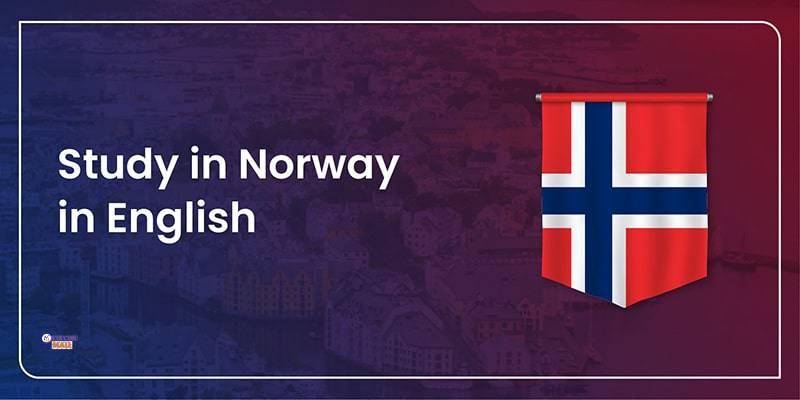A Guide to Obtain Scholarships in Norway

Unlocking Opportunities: A Comprehensive Guide to Scholarships in Norway
Norway, renowned for its stunning landscapes, high quality of life, and progressive society, is increasingly becoming a popular destination for international students seeking higher education through scholarship.
One of the most appealing aspects of studying in Norway is the availability of various scholarship facilities and institutions that can significantly ease the financial burden of education.
In this blog post, we will explore the scholarship landscape in Norway, the modalities and qualifications required, the application processes, and the evolution of scholarship opportunities over time.
The Evolution of Scholarships in Norway
Historically, Norway has been committed to providing accessible education to both its citizens and international students.
The country’s educational policies reflect its values of equality and inclusiveness. Over the years, scholarship opportunities have evolved from government-funded programs to a more diversified approach, including university-specific scholarships, private foundations, and international partnerships.
Initially, scholarships in Norway were predominantly offered to students from developing countries as part of Norway’s foreign aid commitments.
However, as the country opened its doors to a broader range of international students, scholarship offerings expanded to include various fields of study, academic excellence, and specific demographics, such as women in STEM.

Types of Scholarships Offered in Norway
1. Government Scholarships
The Norwegian government provides several scholarship programs aimed at international students. Notable among these is the Quota Scheme, which was designed to promote international cooperation and exchange.
Although the Quota Scheme has been phased out, the Norwegian government continues to support various scholarship initiatives.
2. University-Specific Scholarships
Many Norwegian universities and colleges offer their own scholarships for international students. These scholarships often target specific programs or fields of study, and eligibility criteria can vary widely. Some notable institutions include:
• University of Oslo: Offers scholarships for Master’s programs, particularly for students from developing countries.
• Norwegian University of Science and Technology (NTNU): Provides scholarships for international students, focusing on specific fields like engineering and technology.
• BI Norwegian Business School: Offers scholarships for international applicants to their Master’s programs.
3. Private Foundations and Organizations
Several private foundations and organizations in Norway also provide scholarships. These scholarships can be based on merit, need, or specific criteria such as nationality or field of study. Examples include:
• The Fulbright Program: Offers scholarships for American students to study in Norway.
• The Norwegian State Educational Loan Fund (Lånekassen): Provides loans and grants to students, including international students, under certain conditions.
4. Erasmus+ Program
As a participant in the Erasmus+ program, Norwegian universities offer scholarships to students from EU/EEA countries. This program promotes student mobility and academic collaboration across Europe.
Qualifications for Scholarships
Qualifying for scholarships in Norway typically depends on several factors:
1. Academic Excellence: Most scholarships require a strong academic record. Applicants may need to provide transcripts and letters of recommendation.
2. Field of Study: Some scholarships are specific to certain fields (e.g., STEM, humanities, social sciences).
3. Nationality: Certain scholarships are aimed at students from specific countries or regions.
4. Financial Need: Some scholarships consider the financial situation of the applicant.
5. Language Proficiency: Proficiency in English or Norwegian may be required, depending on the program of study.
How to Apply for Scholarships in Norway
Step 1: Research Opportunities
Begin by researching the various scholarships available. Check the official websites of universities, government scholarship portals, and private organizations. Here are some useful links:
• Study in Norway: Study in Norway
• University of Oslo Scholarships: University of Oslo
• NTNU Scholarships: NTNU
• BI Norwegian Business School: BI Scholarships

Step 2: Prepare Your Application
Gather the required documents, which typically include:
• Academic transcripts
• Letters of recommendation
• A personal statement or motivation letter
• Proof of language proficiency
• CV or resume
Step 3: Submit Your Application
Follow the application guidelines provided by the scholarship provider. This may involve submitting your application through an online portal or directly to the institution. Pay attention to deadlines, as they can vary significantly between scholarships.
Step 4: Follow Up
After submitting your application, it’s a good idea to follow up with the scholarship provider if you don’t receive confirmation of your application. This shows your enthusiasm and commitment.

Other Opportunities for Financial Support
In addition to scholarships, international students in Norway may also explore other financial support options:
• Student Loans: The Norwegian State Educational Loan Fund provides loans and grants to eligible students.
• Part-time Work: International students can work part-time while studying, which can help cover living expenses. Students from outside the EU/EEA can work up to 20 hours per week during the semester.
Conclusion
Norway offers a rich tapestry of scholarship opportunities for international students, reflecting its commitment to education and inclusivity.
By understanding the types of scholarships available, the qualifications required, and the application process, prospective students can navigate their way to a rewarding educational experience in this beautiful country.
For further information and to stay updated on scholarship opportunities, keep an eye on the official websites mentioned above. Norway awaits you with open arms and exceptional educational prospects!
This comprehensive guide aims to empower students with the knowledge they need to pursue their academic dreams in Norway. Happy studying!


3.1A 5Ports USB Charger PD Charging Adapter For Xiaomi iPhone 13 Samsung Mobile Phone Plug Charging QC 3.0 Wall Charger

Gun Range Storage Bag Molle System Outdoor Hunting Accessory Nylon Gun Tactical Case Bags Pistol Tool Shoulder Pack Sniper Black

LQARMY 60L 80L Camping Backpacks Men Military Tactical Backpack Molle Army Hiking Travel Climbing Rucksack Sports Gym Duffel Bag
US $67.00
Further reading

Understanding Scholarship Facilities in Germany

Canadian NGOs and Philanthropists Empowering African Education


UK Based Educational NGOs and Philanthropists for Africans

Stay up to date
Register now to get updates on promotions and coupons
Navigating Scholarship Opportunities in Canada

Shop this story

Medical Cupping Beauty Massager Therapy

Mini Air Pump with LCD Display

Ultrasonic Dental Scaler Oral Care
Further reading

Navigating Scholarship Opportunities in Canada

Understanding Scholarship Facilities in Germany

Canadian NGOs and Philanthropists Empowering African Education
Unlocking Scholarship Opportunities in Australia

Shop this story

Universal Lazy Bracket Mobile Phone Holder

Outdoor Solar LED Camping Lights USB Rechargeable Camping Lighting


Leave a comment